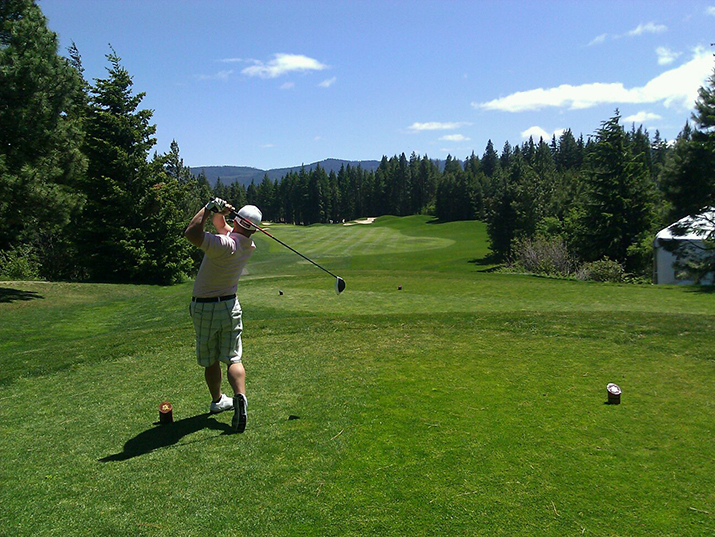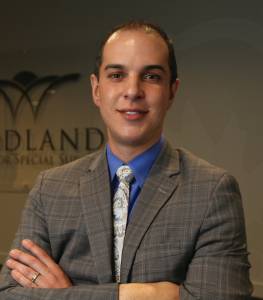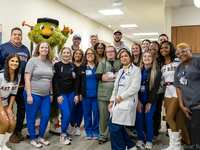- Sections :
- Crime & Public Safety
- Restaurants & Food
- Sports
- More
Local hand surgeon discusses golf-related injuries

THE WOODLANDS, Texas – It’s Family Golf Month, and conditions to celebrate are perfect. The weather is beautiful, the grass is green and full, and the local courses are open for business. Unfortunately, along with the summer golfing fun come the injuries.
Back pain is often high among golfers due to rotational stresses of the upper body. Many tee-offs on the green end up looking like contortionist routines, and can cause considerable stress or injury to your body. Your grip on the golf club can also play havoc on your hands and wrists if you're not careful.
In sports that involve gripping an instrument – such as a golf club – strained wrists are common, as is muscle strain, which often occurs from quick, sudden moves. Injuries involving the shoulder, such as shoulder tendinitis, are even more common. Instances of golfer’s elbow, or torn tendons, happen through overuse and repetition.
Dr. Mark Ciaglia of Woodlands Center for Special Surgery, is the leading expert in the area on such injuries. His practice covers every conceivable injury on someone that occurs between the fingertips and the shoulder. He has some special tips to keep you safe and secure on the greens: 1. Stay hydrated to keep muscles working efficiently. The human body is composed of 70 percent water, which is involved in so many processes that being dehydrated by just two percent can hinder your body. Being only slightly dehydrated can slow the activity of enzymes in the body, including ones responsible for the production of energy. “And those particularly spectacular muscle cramps in your arms that you’re feeling? You guessed it; caused in large part by dehydration,” said Ciaglia.
2. Allow for pre-game warm up and post-game stretching. Better flexibility frequently improves your performance in physical activities and decreases your risk of injuries. “Stretching before activity can help your joints move through their full range of motion and enable your muscles to work most effectively. Stretching your entire body – and especially your hands – before and after activity also increases blood flow to the muscles,” said Ciaglia.
3. Don’t overdo your game or practice schedule. Like someone who has spent too many hours in one sitting at the gym, marathon golfers can get too much of a good thing. “Maintain periodic resting between holes, and be aware that, just because you’re feeling fine at the moment, your adrenaline levels can be masking the trouble to come,” said Ciaglia.
4. Continually modify your movements and stance while playing to avoid injury. Repetitive Motion Injury can strike with something even as mundane as typing at a computer, so maintaining the same grip swing after swing – especially if it is an improper golf grip – can cause some damage. “Bodies at rest – and extremities in a limited motion – tend to seize up,” said Ciaglia. “Picture a hammer even gently tapping a wall. If you move the hammer all around the wall, deep damage is minimal; however, if you just strike the same place over and over, pretty soon there will be an irreparable hole. Your bones act the same way.”
5. Avoid playing if you are in any pain. “It’s essential that you listen to your body,” said Ciaglia. “Pain is our body’s way of telling us that something is or might be wrong.” He warns that a relatively minor injury such as a mild wrist sprain or microfracture in your pinky finger can rapidly devolve into a major health issue if left unchecked.
“Should you sustain injuries, flexing and stretching will help alleviate the pain, as well as applying cold packs to the area several times a day,” said Ciaglia. He states that pain can also be managed by taking nonsteroidal anti-inflammatory drugs like ibuprofen. “However, you should always be sure to have a specialist on hand to answer your questions. And you don’t need to wait until you’re in pain to come to a health clinic like Woodlands Center for Special Surgery for routine maintenance and checkups.”
If you have concerns about an injury or questions regarding injury prevention, speak with Board-certified surgeon and hand specialist Dr. Mark Ciaglia at The Woodlands Center for Special Surgery, located at 17450 St. Luke’s Way, Suite 390, in The Woodlands. For more information, please call 936-242-1437 or visit www.wcfspecialsurgery.com.








